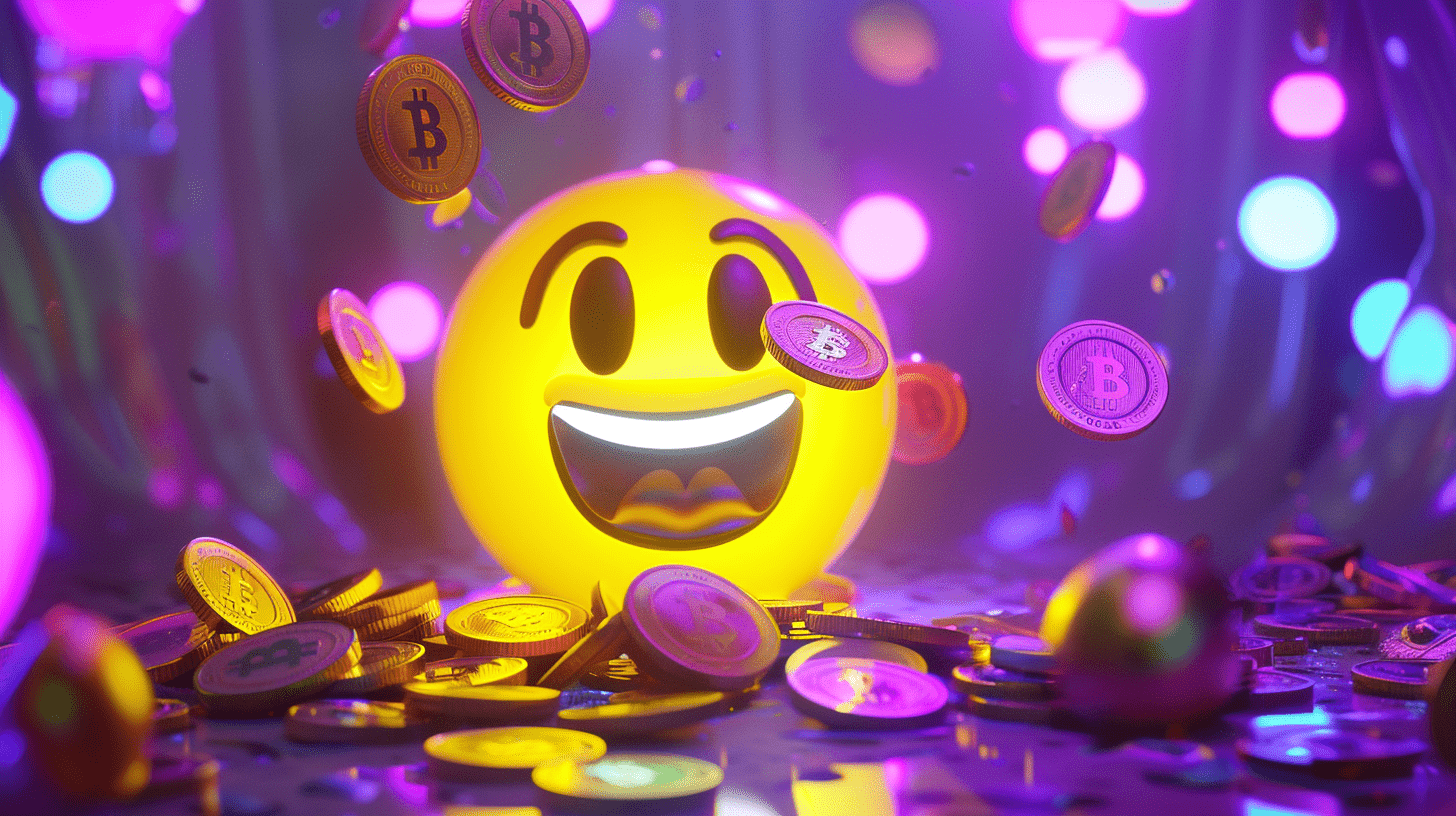How to Cash Out Game Currency to Real Money (Without Getting Scammed)

Gaming currencies like Animal Crossing's Bells and Pokémon's PokéDollars have a surprising real-life value — about 135 to 1 USD. The expanding crypto gaming market makes it easier to convert these virtual coins into actual money.
Players can now turn their gaming time into money-making opportunities. Yet the path isn't simple. Many games block direct currency conversion and will ban accounts that break these rules. The Netherlands' gambling laws make it illegal to exchange in-game coins for real money.
Players need to understand the right ways to convert their in-game assets into real-life value. This piece shows you how to cash out game currency legally while steering clear of scams and legal troubles.

Is Selling Your Game Currency Legal?
Game currency conversion to real money sits in a complex gray area legally. Selling in-game currency doesn't break most national laws, yet it goes against the terms of service (ToS) agreements players accept when they start gaming. This key difference means you won't face criminal charges for selling game currency, but game publishers might take serious action against you.
Game Terms of Service considerations
Major game companies don't allow players to sell in-game currency for real money through their ToS. Electronic Arts (EA) states clearly that "EA Virtual Currency cannot be sold, traded, transferred, or exchanged for cash" and that it "has no monetary value and has no value outside of our products and services". PlayStation's terms make it clear that store purchases are "for private, non-commercial use" and users cannot "sell, rent, lease, loan, sublicense, modify, adapt, arrange, translate, reverse engineer, decompile, or disassemble any portion of the Content".
Game companies have good reasons behind these rules:
- They need to keep the game economy balanced
- They want to stop unfair advantages
- They aim to reduce fraud and scams
- They must protect their intellectual property rights
- They avoid legal issues with money transmission
So even if your local laws don't specifically ban selling game currency, you'll still break your agreement with the game publisher.
Regional laws affecting virtual currency sales
Legal rules about virtual currency sales vary substantially worldwide. South Korea's Supreme Court ruled in 2009 that players can legally exchange virtual currency for real money, even if it breaks game terms of service. South Korean gamers won't face legal trouble for trading virtual currency, though publishers can still suspend their accounts.
Different countries handle these transactions uniquely. Some classify virtual currency trades as:
- Activities that might need proper money transmission licenses
- Income that requires tax reporting
- Transactions under anti-money laundering rules
- Activities that might fall under gambling laws
US Financial Crimes Enforcement Network (FinCEN) states that "the definition of a money transmitter does not differentiate between real currencies and convertible virtual currencies". This means businesses dealing with convertible virtual currencies need proper registration as money service businesses and must follow Bank Secrecy Act rules.
Your risk grows with the scale of operation. Legal experts point out that "most companies will not actually do anything unless you are blatantly making large sums of money. It gets too pricey to go after someone you know you'll never recoup the money from".
Consequences of breaking game rules
Game publishers, rather than law enforcement, usually handle rule breakers. Breaking currency sale rules can lead to:
- Account termination — EA's terms warn: "If your EA Account is terminated, you will not have access to your EA Account or Entitlements and may be barred from accessing or using any EA Service again".
- Loss of all virtual items — Banned accounts lose all purchased or earned items without refund.
- Financial losses — Players lose access to their paid games and items, while publishers actively fight third-party currency markets through technical means.
Security experts raise additional concerns. They say "buying online game currency from third parties may sound relatively harmless," but these markets often link to cybercrime including account theft and money laundering. Criminals get game currency by exploiting bugs or stealing accounts, then sell it online and convert payments to untraceable cryptocurrency.
You should learn about your region's laws and review the terms of service carefully before trying to convert game currency to real money.

Evaluating Your In-Game Assets' Worth
You need to know your virtual assets' market value before converting game currency to real money. Games come with their own currency systems and economies that create different real-world values.
Market research techniques
The first step to determine fair market value is thorough research. The gaming market never stops evolving. New monetization methods become more complex and merge digital behavior with ground economics. Here's how to research the market effectively:
- Compile comparative statistics: SteamSpy and similar platforms help you gather data about similar games. You can find ownership numbers, prices, and review counts for games in your genre to set baseline expectations.
- Analyze current marketplace listings: Live pricing insights come from checking active listings for similar in-game assets. League of Legends, to name just one example, makes billions through their in-game currencies. Skin costs range from 520 RP to 3250 RP.
- Identify value-driving factors: Asset worth depends on rarity, functional advantages, and cosmetic appeal. Research shows players buy items based on hedonistic, social, or utility-driven motivations.
Using price check tools and forums
The market offers specialized tools that help value in-game assets accurately:
The iGV account valuation tool gives accurate assessments for popular games like League of Legends, Fortnite, Valorant, and Genshin Impact. This free tool calculates potential selling value by analyzing account level, prop rarity, skin collections, and in-game ranking.
VG Insights offers Steam pricing tools that indie developers love. These tools show recommended price ranges based on game quality: $14-16 for high-quality games, $8-10 for mid-quality, and $2-4 for budget titles.
Gaming collectible enthusiasts can use CLZ Games with PriceCharting. These services update values daily based on item condition (loose, complete-in-box, or new).
Specialized forums and Discord channels feature "price check" threads where experienced traders give personalized valuations based on current market conditions.
Timing your sale for maximum value
Your virtual investments' return substantially depends on strategic timing:
The fourth quarter (November-December) stands out as the best time to sell game assets, especially board games and collectibles. Holiday shopping creates price spikes that you can track through historical pricing tools like Keepa.
Limited-time events create value fluctuation opportunities. Games often release seasonal content or exclusive rewards that last a few months. League of Legends releases exclusive skins and icons that become permanently unavailable, which makes their value increase over time.
Market values can change dramatically when developers alter drop rates, rebalance economies, or introduce new content. Smart sellers stay informed about upcoming patches or developer announcements to time their sales perfectly.
Players who want to maximize returns when cashing out virtual assets must understand both internal game economies and external market forces. Success comes from diligent research, the right tools, and perfect timing.

Choosing the Right Cash-Out Method
The right platform to convert game currency to real money can mean the difference between a smooth transaction and losing your assets. Each cash-out option has unique benefits based on your priorities for security, fees, and ease of use.
Direct player-to-player sales
Player-to-player trading gives you the quickest way to sell in-game currency but comes with big risks. Sellers usually get better profits without middlemen since no platform takes a cut. But this approach leaves you with almost no protection against scammers.
Your best safeguards for direct trades:
- Check buyer reputation on gaming forums that are years old
- Get partial payment upfront before big transfers
- Keep records of all buyer communications
- Hold onto account credentials until payment clears
Using trusted middleman services
Middleman services give you vital protection as both buyer and seller by holding assets in escrow until payment goes through. PlayerAuctions acts as a neutral mediator that secures payment and handles disputes through its PlayerGuardian system. The platform also sells insurance for game accounts in case the original owner tries to reclaim them.
TradeSafe Middleman takes security up a notch with INSURED middleman services for online trading. They set aside 5% of every transaction fee to maintain an insurance pool for extra protection. The middleman keeps the item safe until the buyer pays the seller and releases it only after confirming payment.
These services make trading simple and secure:
- Sellers hand over the game account/currency to the middleman
- Buyers send payment straight to sellers
- Middlemen transfer the digital assets after payment clears
Game-specific marketplaces
Official game marketplaces give you the safest way to turn virtual goods into real money, though fees run higher. The Rainbow Six Siege Marketplace lets players swap unwanted items for R6S credits, and Ubisoft keeps a 10% fee. This official platform automates buying and selling to match users at the best prices.
Third-party sites like Gameflip serve broader gaming communities. They encrypt all purchase details and back trades with a Gameflip Guarantee offering 100% cash-back protection. PlayerAuctions supports trading in over 300 games of all types.
Key factors in picking your cash-out method:
- Fee rates (from zero in direct trades to 30% on some platforms)
- Security features
- Payout choices and processing speed
- Platform track record and age
Payment options like Payoneer, Skrill, and Bitcoin offer different ways to withdraw based on where you live and what works best for you. A full picture of each platform's requirements will help your game currency smoothly turn into real cash.

Step-by-Step Guide to Selling In-Game Currency
The quickest way to convert virtual currency to cash helps you avoid scams. You need to pick a marketplace you trust and stay safe through the selling process.
Creating secure listings
A good listing starts with proper documentation. You should add detailed information about your game currency. This includes the exact amount and which game it comes from. Players need clear screenshots that show the currency in their account. These screenshots should display their username to prove ownership.
Platforms like Gameflip make this easier through their website or mobile app. Their listing requirements help your items get noticed while keeping everything secure. Some platforms even give you advertising tools that boost your sales without extra costs.
Negotiating with buyers
Your negotiating position gets stronger when you understand what buyers want. You should decide your lowest acceptable price before any talks begin. This helps you avoid making choices based on emotions during negotiations.
Buyers might try to lowball you with unreasonably low prices. The best response is to highlight what makes your offering special instead of dropping your price right away. Some buyers might say your price is too high. That's when you can point to market research that backs up your pricing.
Completing transactions safely
- Pick a payment method (PayPal or Payoneer are popular choices)
- Ask for some payment upfront before big transfers
- Save all buyer communications
- Wait for payment confirmation before making game transfers
Most platforms protect sellers from payment scams. To cite an instance, Gameflip holds buyer payments and keeps sellers safe from chargebacks before item transfers happen.
Delivering the virtual goods
Check that payment cleared before setting up transfer timing with your buyer. Direct transfers to the buyer's game account work best once payment is confirmed.
Take screenshots of the whole transfer process as proof. Your buyer gets three days to report issues on platforms like Gameflip before everything is final. The money moves to your platform wallet after confirmation, and you can cash out right away.
Smart sellers always watch for scams. They check buyer ratings and stick to trusted platforms.

Handling the Financial Aspects
Your successful sale of in-game assets needs proper financial management. This helps you avoid legal issues and boost your profits.
Payment platforms for receiving money
Online bank transfers, also known as account-to-account (A2A) payments, let gamers move funds directly between bank accounts with minimal fees. U.S. merchants paid $101 billion in Visa and MasterCard fees during 2023. A2A pricing structures cost nowhere near as much. These platforms guarantee payments and take on the risk of returned transactions. They maintain impressive 95% approval rates.
Quick payouts are a vital feature for gaming transactions. Studies show 79% of gamers want instant withdrawals when they can get them. Many payment solutions now process payouts 24/7, even on weekends and holidays. They use systems like FedNow or RTP rails.
The payment platform you pick should give you the right mix of convenience, cost, and security based on what you need.
Tax implications of gaming income
The Internal Revenue Service (IRS) clearly labels digital assets, including convertible game currencies, as property for tax purposes. This means you need to follow specific reporting rules:
- You must answer the digital asset question on your tax return (Forms 1040, 1040-SR, or 1040-NR)
- Report any sale or exchange of game currency with Form 8949 and Schedule D
- Your income from selling virtual goods gets taxed whatever you receive a payment statement or not
The IRS says you need to figure out your tax obligation by determining your digital assets' basis (cost) and the fair market value you got from the sale. Your gain or loss equals the difference between these values. You'll get better long-term capital gain rates if you hold assets over one year.
Self-employed sellers should note that virtual currency received for services counts as self-employment income. This means it's subject to self-employment tax.
Keeping records of your transactions
Good documentation helps you stay tax compliant and manage your finances better. Keep these basic records:
- The time you received each batch of game currency
- The fair market value (in USD) when you got it
- Purchase receipts and transaction confirmations
- Sale documentation with buyer information
You might want to track each virtual currency purchase in separate digital wallets to make accounting easier. The IRS wants "records sufficient to establish positions taken on tax returns". This makes detailed documentation mandatory.
Converting game currency to real money can be profitable. A solid grasp of the financial aspects helps you keep your gaming income legal and optimized.

Conclusion
Game currency conversion to real money needs careful thought about several things. Players need to weigh the possible rewards against risks such as account bans and legal issues. Many games don't allow direct currency sales, but players who handle this carefully can find legitimate platforms and proper methods.
Market research helps determine asset values and the right timing greatly affects success. Trusted middleman services and official game marketplaces are safer options than direct trading, though they charge more fees. Good documentation and detailed records help prevent disputes and ensure tax compliance.
Player security should be the top priority during this process. Smart traders choose trusted platforms and keep detailed transaction records. They also follow proper financial reporting rules. Your success in virtual currency trading depends on solid market knowledge and strict adherence to platform rules and legal requirements.
